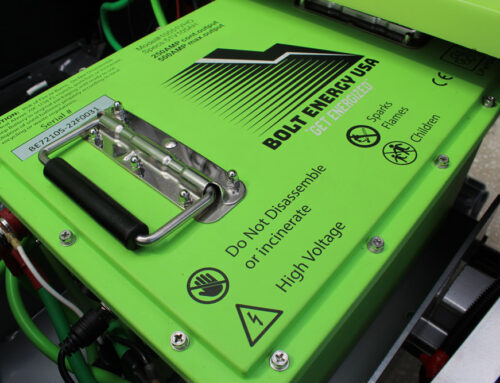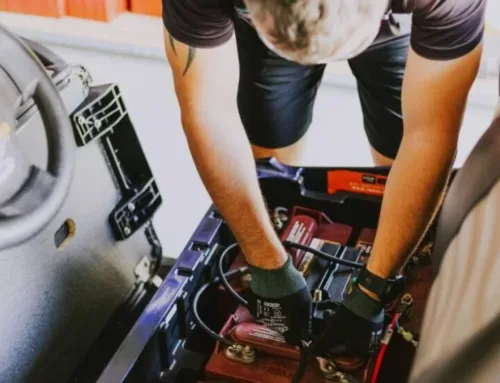Golf carts have long been a staple on golf courses, but in recent years, they’ve found a new role off the greens: as a convenient mode of transportation in communities, neighborhoods, and even city streets. Street-legal golf carts, also known as Low-Speed Vehicles (LSVs), are becoming increasingly popular for short commutes, running errands, or simply cruising around town. This article covers everything you need to know about street-legal golf carts, including their features, regulations, and benefits.
What Makes a Golf Cart Street Legal?
Not all golf carts can legally operate on public roads. To qualify as a street-legal golf cart, the vehicle must meet specific federal, state, and local requirements. These standards vary by location, but there are common features that all street-legal golf carts must have:
1. Speed Capability: A street-legal golf cart must be able to reach a minimum speed of 20-25 miles per hour (mph). If the cart’s top speed is below this threshold, it is considered a traditional golf cart and can only be used on private property or designated areas, such as golf courses.
2. Safety Equipment: For a golf cart to be considered street legal, it must be outfitted with specific safety features. These typically include:
• Headlights and taillights
• Turn signals
• Brake lights
• Side and rearview mirrors
• Seat belts
• Windshield
• Horn
• Reflectors
3. Vehicle Identification Number (VIN): Most street-legal golf carts must be registered with the Department of Motor Vehicles (DMV) and have a Vehicle Identification Number (VIN), just like any other motor vehicle.
4. License and Insurance: Drivers of street-legal golf carts must have a valid driver’s license, and the vehicle itself may need to be insured. Insurance requirements vary by state, but in many places, street-legal golf carts must carry liability coverage similar to that required for cars.
Federal and State Regulations
While federal law establishes a broad set of guidelines for street-legal golf carts, states and local governments often set their own specific regulations. These can include where and when the carts can be driven, so it’s essential to check the rules in your area before hitting the road.
Federal Regulations
The National Highway Traffic Safety Administration (NHTSA) classifies street-legal golf carts as Low-Speed Vehicles (LSVs). To qualify as an LSV, a vehicle must:
• Have four wheels
• Have a gross vehicle weight rating (GVWR) of less than 3,000 pounds
• Be capable of traveling at a speed between 20-25 mph
• Be operated on roads with a posted speed limit of 35 mph or less
LSVs are subject to certain federal safety standards but are exempt from others that apply to traditional passenger vehicles. For example, LSVs must have safety equipment like lights and seat belts, but they are not required to have airbags or undergo crash testing.
State and Local Regulations
Regulations governing where street-legal golf carts can operate often vary by state, and even by city. Some important considerations include:
• Speed limits: Most states allow street-legal golf carts to drive on roads with speed limits of 35 mph or lower. Driving on highways or roads with higher speed limits is typically prohibited, although golf carts may be allowed to cross such roads.
• Age restrictions: In most states, you must have a valid driver’s license to operate a street-legal golf cart. Some areas may have additional age restrictions or require drivers to be at least 18 years old.
• Registration and licensing: In many states, street-legal golf carts must be registered with the DMV and display a license plate. Local regulations may also require the owner to pay registration fees, similar to those for standard motor vehicles.
Where Are Street Legal Golf Carts Used?
Street-legal golf carts are commonly used in a variety of settings where traditional cars may not be as practical or necessary. These include:
1. Residential Communities: In retirement communities, gated neighborhoods, and other planned developments, street-legal golf carts are a popular way to get around. They offer a low-cost, eco-friendly alternative to cars for short trips to the clubhouse, pool, or community center.
2. College Campuses: Many colleges and universities have adopted street-legal golf carts for campus transportation. These carts are ideal for navigating the sprawling grounds, transporting staff, and providing shuttle services for students.
3. Resort Towns: In beach towns, vacation resorts, and tourist destinations, street-legal golf carts provide a fun and easy way to explore the area. In some coastal cities, these carts are a common sight along boardwalks and beachfront roads.
4. Small Towns and Urban Areas: In some smaller cities, particularly those with a focus on sustainability, street-legal golf carts are used as everyday vehicles for commuting, shopping, and running errands.
Benefits of Street Legal Golf Carts
Street-legal golf carts offer several advantages over traditional vehicles, particularly for short-distance travel in local areas. Here are some of the key benefits:
1. Cost-Effective
Golf carts are significantly cheaper to purchase and maintain than regular cars. New street-legal models typically range from $7,000 to $15,000, while used models can be found for even less. They also consume less energy, especially if they are electric-powered, and the maintenance costs are generally lower.
2. Environmentally Friendly
Electric golf carts produce zero emissions, making them an eco-friendly alternative to gas-powered vehicles. As more communities embrace sustainability, electric LSVs are becoming an attractive option for reducing carbon footprints, especially for short trips.
3. Convenient for Short Trips
Golf carts are perfect for short-distance travel, whether it’s running errands around town, commuting to work, or getting around residential communities. They are compact, easy to park, and require less space than regular cars, making them ideal for areas with narrow roads or limited parking.
4. Customizable and Fun
Street-legal golf carts come with a variety of customization options, allowing owners to personalize their carts with different colors, designs, and features. From upgraded seats and stereos to larger tires and off-road capabilities, golf cart owners can make their carts uniquely their own.
Conclusion
Street-legal golf carts provide an affordable, eco-friendly, and convenient mode of transportation for a wide range of uses. Whether you’re cruising through a neighborhood, navigating a college campus, or getting around town, street-legal golf carts offer a practical and enjoyable alternative to traditional vehicles. However, it’s important to familiarize yourself with the local laws and regulations before driving your cart on public roads to ensure safety and compliance.



